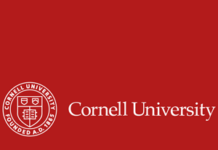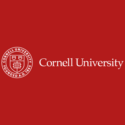 The nation’s highest-ranked universities are generally very secretive of their admission rates for African American students. Due to the threat of litigation, many of the nation’s highest-ranked universities are unwilling to add fuel to the fire by showing any preferences for Black applicants.
The nation’s highest-ranked universities are generally very secretive of their admission rates for African American students. Due to the threat of litigation, many of the nation’s highest-ranked universities are unwilling to add fuel to the fire by showing any preferences for Black applicants.
But the federal government requires these universities to submit data on the graduation rates of all students and to break this data down by racial and ethnic group.
All of the 20 highest-ranked universities in the United States according to ratings by U.S. News & World Report have Black student graduation rates far higher than the national average of 48 percent. This is not surprising because these universities attract and admit the best and the brightest students, who are likely to succeed in a challenging academic environment. Also, these high-ranking universities generally have large endowments and generous financial aid packages that shield Black students from low-income families from the financial burdens of elite higher education.
Yet, there are significant differences in the graduation rates of Black students at these universities. Among the 20 highest-rated institutions in the U.S. News rankings, over the past four cohorts of entering students, Harvard University has an average Black student graduation rate of 98 percent. At Yale, the Black student graduation rate is 97 percent. Princeton University graduates 95 percent of its Black students. Also posting a Black student graduation rate of over 90 percent are Columbia University, Stanford University, the University of Pennsylvania, Northwestern University, Duke University, Brown University, MIT, Dartmouth College, Vanderbilt University, Washington University in St. Louis, and Cornell University.
Among the 20 highest-ranked universities in the U.S. News survey, UCLA had the lowest Black student graduation rate of 79 percent. The Black student graduation rate was between 86 percent and 88 percent at Johns Hopkins University, the University of Chicago, the University of Notre Dame, Caltech, and Rice University.












How is a 80-97% graduation rate bad for African Americans, that is 40-60% higher than many HBCUs?
Comparisons are not possible since macro-culture academic credentials are not nearly the same
Talk about an unfair comparison. The majoirty of the so-called “African-American” students at Harvard and other “White Ivies” are actually African and Caribbean immigrants who hail from the upper strata within their society in those “Third World” countries. In fact, for the actual native born Black Americans at Harvard and the like hail from the upper echelons in so-called Black America. Similar claims can be made for White American student graduation rate at Harvard and the like to White American students at South Dakota State or Eastern Kentucky University. The findings would be similar along with the reality that students who attend the White Ivies generally have realitively few academic weaknesses as compared to “many students” at other higher institutions.
What are you talking about it’s comparing the percentage of graduates that’s higher then what was said , comparing it to other races means what that we still not achieving we are clearly excelling way more then propagandists its jealous that makes one have to compare to other races to discredit the black men and women achievements. To keep us feeling like we can’t but historical it was us inventing and educated and how certain are you they are not American black people it’s a sin how bad other races try to discredit black people
Ivy League graduation rates are on average high anyways. Good point, Michael, about the Black students labeled as African American.
I agree with Michael’s point about “African Americans” generally meaning non ADOS at these ivy league institutions.
Thanks for the informative information. What is my Graduate School alma mater The Ohio State University graduation rate for Black students?
74 percent
People need to seriously recognize that the majority of “native born Black Americans” who do not complete their respective graduate degree at most HWCU (e.g., Historically White Colleges and Universities)[aka PWIs] due to departmental and administrative racism. These range from difficulty assembling a Committee along with having an intellectually secure advisor, to the proverbial daily racial microagressions. In other words, so long a you present as a non-people (e.g., “I don’t see color”) in your academic writing and public discourse you’ll very easily obtain your graduate degree. However, you will have a high probability of not intellectually defending the native born Black community because you have been adequately prepared to do just that.
As important as it it may be for individuals to complete their degree programs, it is even more important for them to take college courses that will provide them with lasting, useful knowledge — knowledge that can help them navigate a complicated world and earn a decent living.
Many universities burden students with courses of little value, or instructors who either cannot teach or who confuse students with too many abstract concepts. I wish the JBHE would help black students with rating systems that evaluate popular academic courses at major universities on criteria like rigor and “accessibility” (i.e., the extent to which the subject matter is taught in a way that makes it easy for students to understand and apply the material).
Some universities make it much harder than others for students to learn bread-and-butter subjects like accounting, finance, economics and IT. Most black students don’t have enough information on who the “bad guys” are.